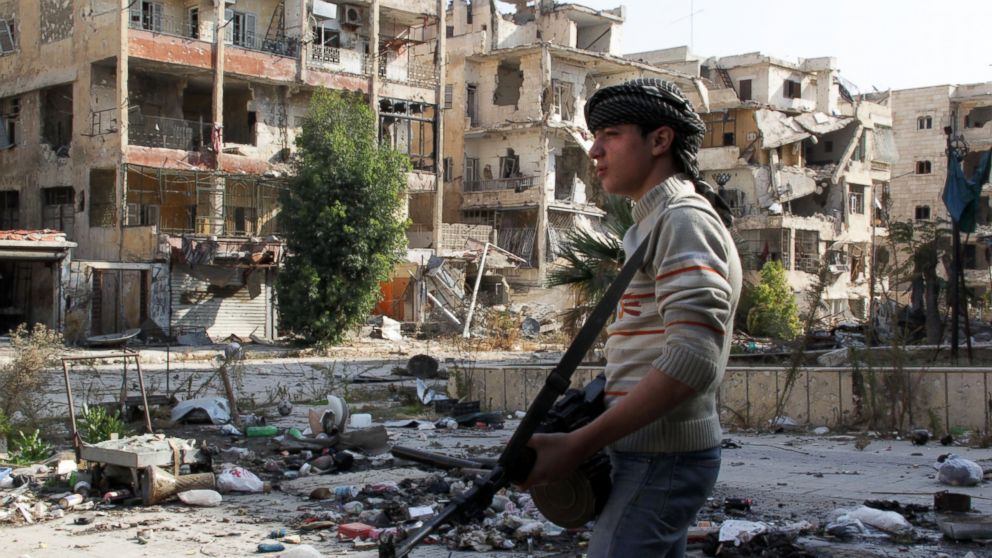Polio Vaccine Not Reaching Syrian Rebel Area of Aleppo
Polio scare has prompted a vaccine campaign in Syria

ALEPPO, Syria — -- Doctors in the country warn that the current polio vaccine campaign, triggered by the discovery of cases in Aleppo province, is not reaching children in opposition-controlled areas here.
Polio, which was eradicated in Syria in 1991, has shown signs of re-emergence in the countryside near Aleppo city. Clinical examinations conducted using a differential diagnosis (a medical method based on process of elimination) have revealed two suspected cases so far.
Dr. Abdul Razzaq al-Darwish, who is based in Syria, says that these clinical examinations are not enough to verify the presence of the disease. Rather, doctors must conduct various analyses and use a laboratory implant to confirm the existence of polio. But opposition-held areas in Syria lack the necessary equipment. Instead, doctors like Darwish must wait for the arrival of foreign medical organizations like to conduct the tests.
On Oct. 17, the World Health Organization said that a cluster of 22 cases of acute flaccid paralysis had surfaced in Syria. Most of the cases were only toddlers who were under-immunized or not immunized at all. The WHO subsequently launched an immunization campaign on Oct. 24. The goal is to vaccinate 1.6 million children against polio, measles, mumps and rubella in "government-controlled and contested areas."
Opposition-held areas were not mentioned in the statement, raising medical workers' fears that children there will be left behind.
Darwish, who works in various field hospitals in the rural opposition-held areas around Aleppo, says that the new campaign had not reached any of his patients.
"The absence of vaccines in the rebel-held areas is the reason behind the emergence of this disease," he says, cautioning that the epidemic could spread rapidly if it was not dealt with immediately. He adds that a network of Syrian doctors and pharmacists, in collaboration with medical organizations operating in opposition areas, are working to search out and report cases of polio in Aleppo as they occur, so that they might be dealt with immediately.
Polio is categorized as a highly infectious disease. It is a virus that invades the nervous system, causing total paralysis in a matter of hours, and mainly affects children under the age of five. There is no cure for polio, but it is possible, Dr. Darwish says, to prevent it from spreading. As of 2013, the WHO said polio had been eradicated in all but three countries: Nigeria, Afghanistan and Pakistan. But the presence of just one child infected with polio puts children around the world at risk of infection. The organization says that the failure to eradicate the virus could result in 200,000 new cases worldwide within 10 years.
With Syria split effectively into rebel, regime and contested areas divided by dangerous front lines and long-term sieges, it remains to be seen how the vaccination campaign can reach all of Syria's children.




